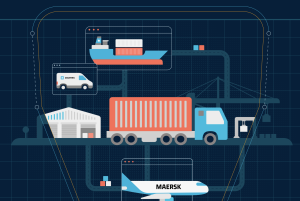 Selecting the right suppliers remains a combination of analysis, art and fortune-telling. There are many decision-making traps buyers can fall into. Cuneyt Altinoz, a supply chain management and decision analysis lecture at Kaplan University (US) has taken the following from JE Russo and PJH Schoemaker’s book Decision Traps: Ten Barriers to Brilliant Decision-Making and How to Overcome Them and applied them to a supply chain management context.
Selecting the right suppliers remains a combination of analysis, art and fortune-telling. There are many decision-making traps buyers can fall into. Cuneyt Altinoz, a supply chain management and decision analysis lecture at Kaplan University (US) has taken the following from JE Russo and PJH Schoemaker’s book Decision Traps: Ten Barriers to Brilliant Decision-Making and How to Overcome Them and applied them to a supply chain management context.
1. Group failure
Assuming that because many smart people are involved, good choices will follow automatically, which leads to a failure to manage the group decision-making process.
The performance of suppliers can have a far-reaching effect in a organisation. From high-level management to manufacturing, there are many different groups with a set of requirements for those suppliers. To ensure the selection of suppliers that can best satisfy these needs, decision makers have to work with all those internal stakeholders. Most buyers are experienced and familiar with what everyone wants, but it is a mistake to assume co-operation will take place even if there is a process for it.
2. Overconfidence in your judgement
Failing to collect key factual information because you are too sure of your assumptions and opinions.
This can appear in two ways in supplier selection. Buyers may assume they know what everyone in the company wants regarding the suppliers, or that they know how to evaluate suppliers of a particular type, relying on bits of information that have previously served them well.
In the end the over confidence in judgement takes place because of habit and the absence of any impetus to change those habits.
Instead, buyers should be in constant communication with other groups in the organisation (such as manufacturing, marketing and higher management), to check if their assumptions should be amended. Being too sure of their assumptions – especially in dynamic markets – is a significant problem.
3. Short-sighted shortcuts
Relying inappropriately on rules of thumb, such as implicitly trusting the most readily available information, or taking too much heed of the most convenient facts.
This does not happen because buyers are naïve and trust the readily available information or rules of thumb in decision making; it happens because it is very hard to do otherwise.
Information about potential suppliers is difficult to come by and with all the factors that can feed into selecting a ‘good’ supplier, it is only natural to rely on shortcuts. Vigilance and repeated examination of current practices is key.
4. Shooting from the hip
Believing you can keep straight in your head all the information you have discovered, and therefore deciding to ‘wing it’ rather than following a systematic procedure.
This is similar to the previous point, except it is applicable even in cases where the rules of thumb do work well. Even if the heuristics used make sense and are effective, there is value in creating a system of evaluation.
5. Not keeping track
Assuming that experience will make its lessons available automatically and consequently failing to keep systematic records to track the results of your decisions and failing to analyse these in ways that reveal their key lessons.
This is one of the most common traps. The pace of the business world means most satisfactory decisions are never visited again or scrutinised. Decisions, and the rationale behind them, are usually questioned only when a crisis happens. Supplier development, however, relies on measurement and feedback. This requires constant evaluation of the decision criteria and monitoring of the results.
Dr Cuneyt Altinoz teaches courses on supply chain management and decision analysis at Kaplan University, US, and has worked for IBM, Ciba-Geigy and East Carolina University.
Originally published in SupplyManagement.


























